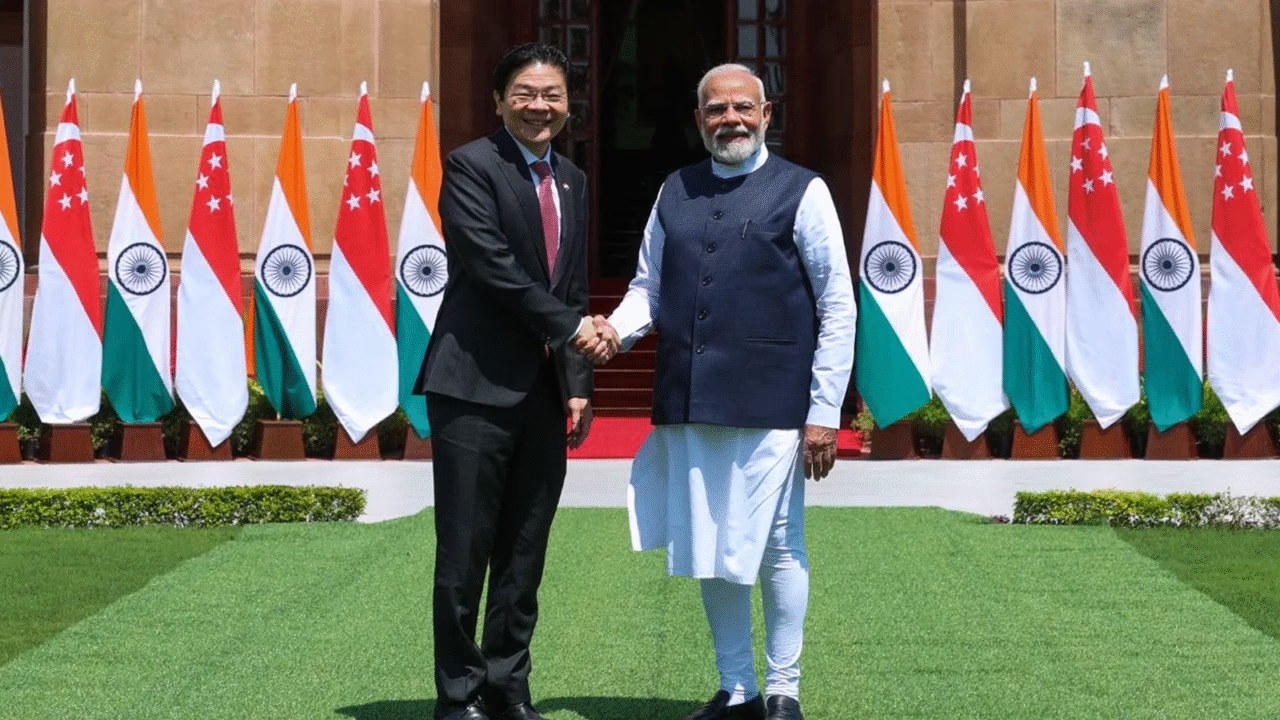India and Singapore are making significant strides in enhancing their strategic partnership, particularly in the areas of defence technology and maritime security. These two nations, already strong allies in trade and cultural interactions, are now expanding their collaboration into emerging technologies such as Artificial Intelligence (AI), quantum computing, and autonomous systems, while also improving their joint efforts in monitoring vital sea routes like the Malacca Strait.
Building on a Strong Foundation
The defence cooperation between India and Singapore has a rich history, beginning in 1994 with the signing of their first Defence Cooperation Agreement. Over the years, this partnership has grown to encompass joint military training, bilateral exercises such as the SIMBEX (Singapore-India Maritime Bilateral Exercise), and robust institutional exchanges between their armed forces. The recent initiative to enhance collaboration represents a significant advancement in adapting their relationship to meet contemporary security challenges.
Defence officials from both nations emphasized that their cooperation will extend beyond conventional military equipment to include next-generation warfare domains. Key areas identified for joint research, development, and deployment include AI-driven defence applications, quantum-enabled secure communications, and unmanned platforms.
Maritime Security: Safeguarding the Strait
Central to this partnership is a mutual dedication to maritime security. The Strait of Malacca, one of the busiest maritime routes globally, facilitates nearly one-third of international trade and energy shipments. Any disruption in this area could have far-reaching effects on the global economy. For India, maintaining freedom of navigation in this region is in line with its Act East Policy and its role as a net security provider in the Indo-Pacific. For Singapore, whose economy is heavily reliant on trade, secure and open sea lanes are essential.
Under the new framework, joint patrols, real-time information sharing, and coordinated surveillance in the region are being enhanced.
Defence Technology: From AI to Quantum
The choice to venture into AI and quantum technologies signifies both nations’ acknowledgment of the evolving landscape of warfare. Future battles are expected to be waged not only with missiles and naval vessels but also with data, algorithms, and cyber systems.
Artificial Intelligence (AI): India and Singapore are investigating AI-driven surveillance systems, autonomous drones, and decision-support tools for naval operations.
Quantum Computing: Ensuring secure communication through quantum cryptography is a primary focus, providing resilience against cyber threats and data breaches.
Collaborative Innovation: Defence start-ups, research institutions, and private entities in both countries are anticipated to work together, combining their expertise and resources.
Strategic Importance
This collaboration also conveys a significant geopolitical message. As the Indo-Pacific region becomes a focal point of strategic rivalry, partnerships like that of India and Singapore act as stabilizing influences. Both nations envision an open, inclusive, and rules-based regional order.
For India, this partnership bolsters its defence diplomacy in Southeast Asia, enhancing relations with ASEAN. For Singapore, India’s increasing military and technological capabilities offer a foundation of stability in a swiftly evolving security landscape.
While the partnership holds great promise, its success hinges on ongoing political commitment, effective coordination between defence agencies, and concrete results in joint initiatives. If implemented effectively, the collaboration between India and Singapore could serve as a blueprint for mid-sized nations to leverage advanced technologies while protecting vital maritime areas.
As Defence Ministers from both countries highlighted, this initiative transcends a mere bilateral agreement—it represents a strategic vision for the future of security in the Indo-Pacific.

